How to find your sleep window and catch better ZZZs
Sleep better and wake up refreshed by understanding your optimal bedtime
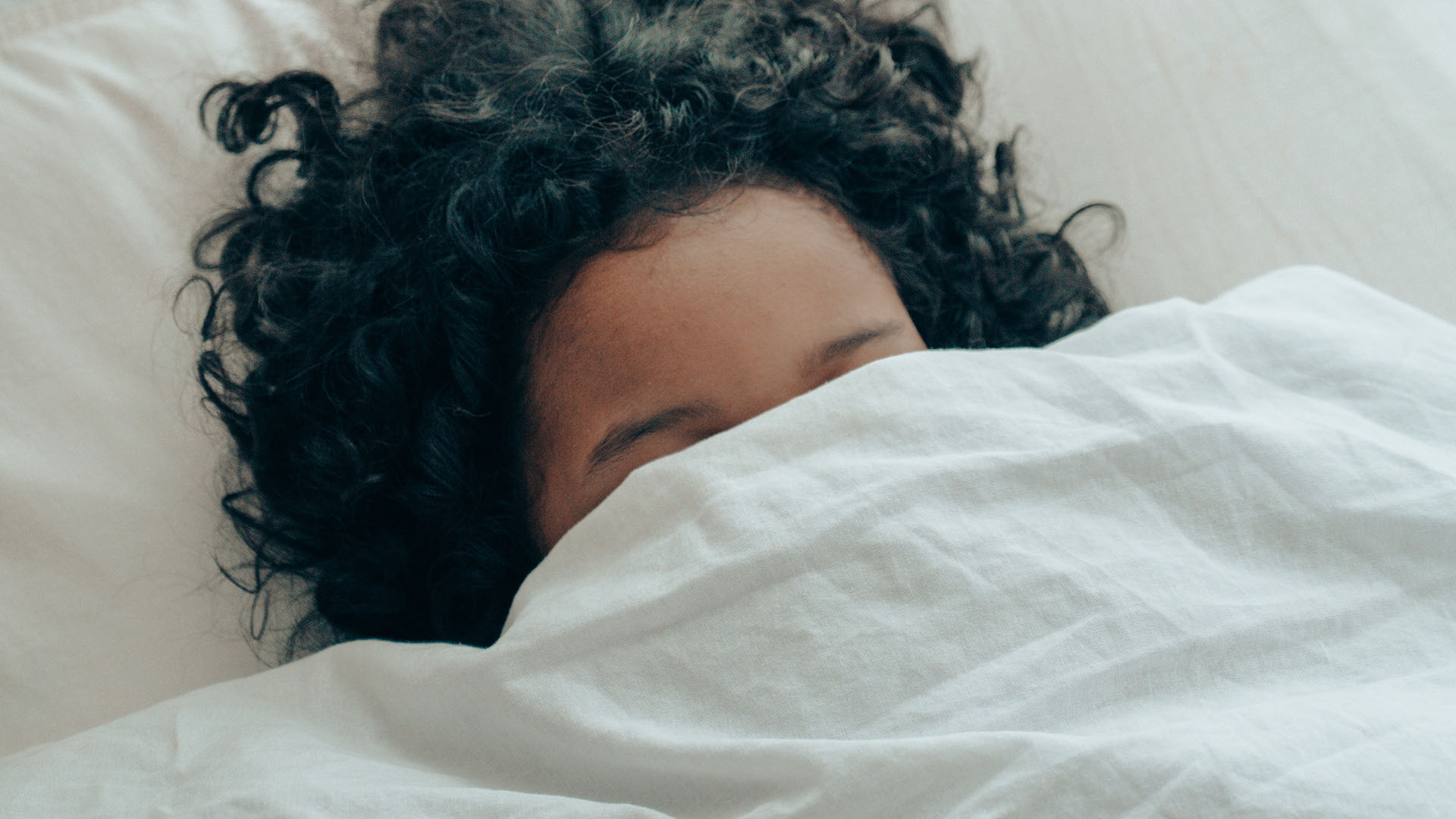
Do you find that despite your best efforts, you're not getting the quality sleep you need every night? It's possible that even if you've invested in the best mattress and best pillow to go with it, you might still be struggling to fall asleep and waking up tired and irritable in the morning after a night of inadequate slumber.
If that's you, it could be helpful to figure out what your sleep window is. Essentially it describes the optimal time period in which someone should fall asleep to get the most restful night; the tricky thing is that everyone has their own individual sleep window is slightly different, so there's no right answer as to when it should be.
According to Chloe Angus, Wellbeing Manager at Cavendish Care, figuring it out is a matter of trial and error; using curiosity and openness to increase your awareness of when you actually feel sleepy. "We suggest a good idea is to begin experimenting between 9:30pm and 11:30pm," she says, "as most people’s optimal sleep window falls within this time."
However she also notes that it might not be quite that simple, as other factors can have an impact on the timing and quality of your sleep, such as stress and alcohol, not to mention things like diet, mood and use of electronic devices. If you're away from your own bed, the first night effect could be coming into play. Chloe suggests that being aware of these factors should help you find it easier to tune into your body and recognise when you feel the most tired.
Chloe adds that if you develop a good sleep routine and regularly fall asleep within your optimal window, you can create a positive brain habit for sleep, which in turn will improve your overall sleep status. Read on to discover her tips for doing just that.
6 tips for finding your personal sleep window
1. Aim for eight hours' sleep
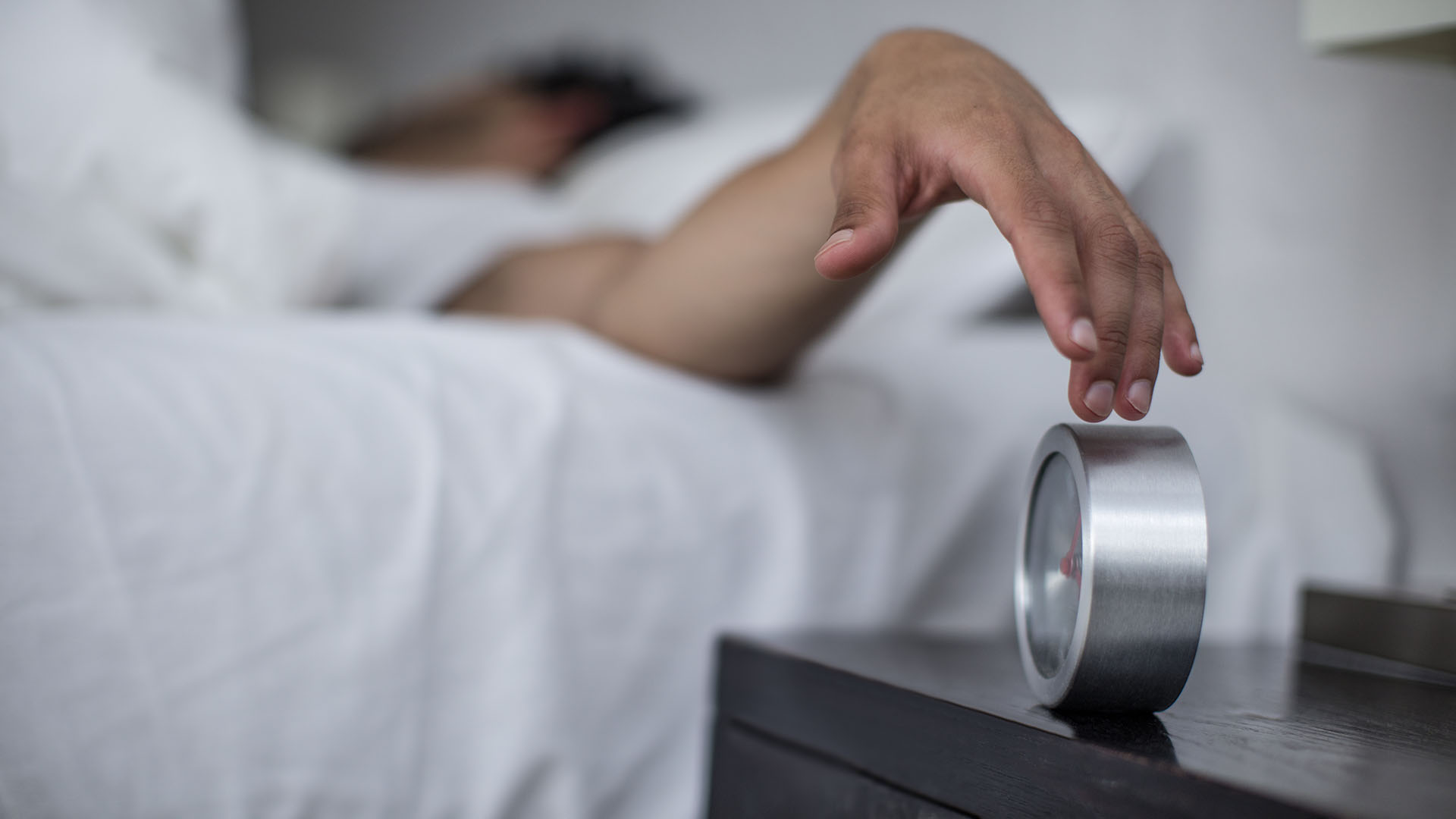
How much sleep do you need? Eight hours a night is the standard recommendation for many, but it may not be the right amount for you. "Whether you feel that you need the recommended eight hours sleep or not," says Chloe, "refer to this benchmark when finding your own sleep window. For example, if you need to get up at 6am, aim to be asleep by 10pm, and adjust accordingly."
Note that when it comes to sleep, it's not always a case of 'the more the better' – oversleeping can have negative effects too. Make sure you know when to go to bed and when you need to wake up, so you're getting the right amount of hours.
Get daily insight, inspiration and deals in your inbox
Sign up for breaking news, reviews, opinion, top tech deals, and more.
2. Don't expect to drop straight off
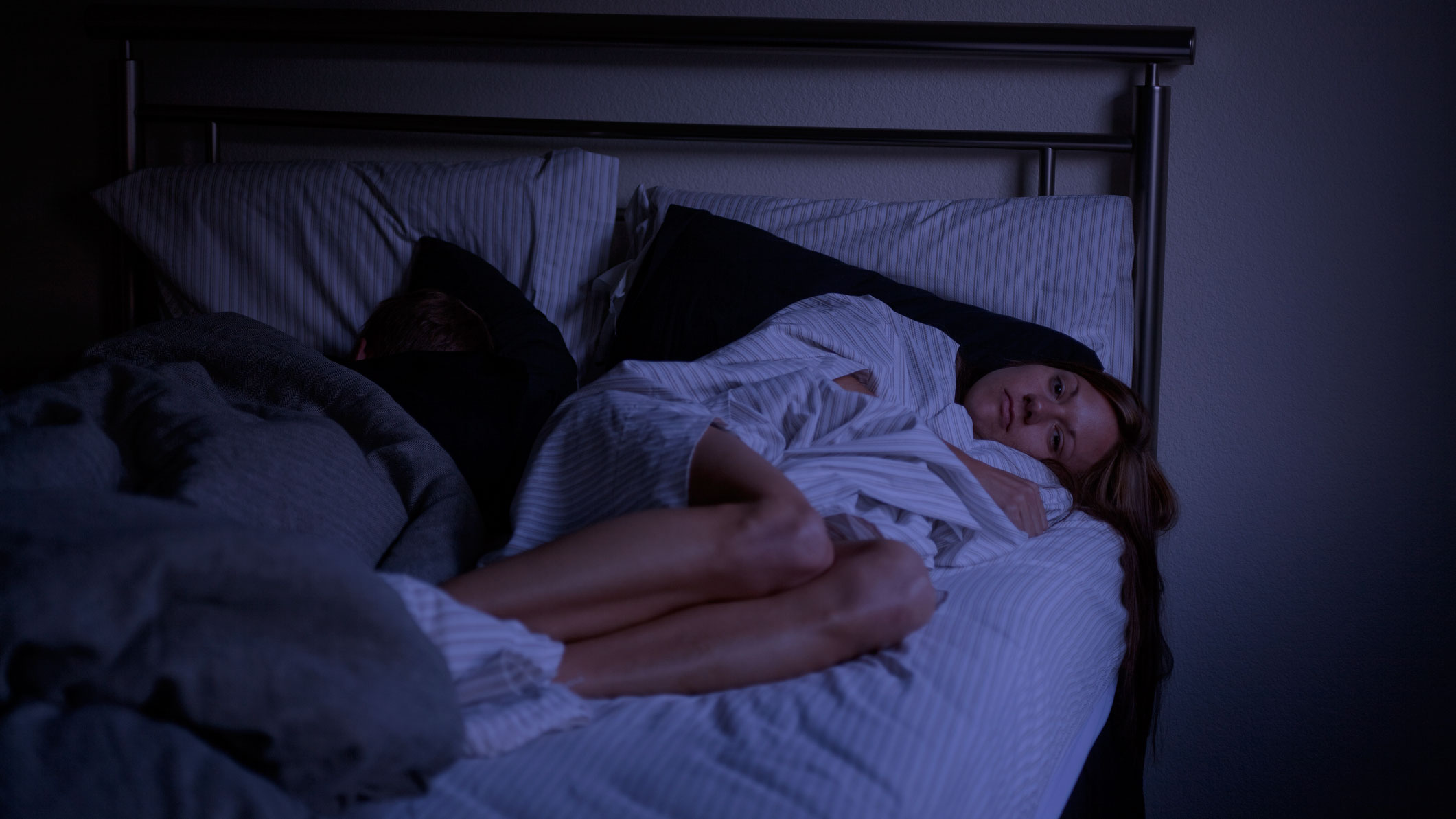
It's easy to fall into the trap of not falling asleep straight away, then being kept awake worrying about not being able to get to sleep. Chloe points out that it's very rare to fall asleep as soon as our heads hit the pillow, so you need to factor in the time it takes to actually fall asleep. "If you're aiming to be asleep by 10pm, get into bed at 9pm if it takes you a while to wind down," she says.
If you're finding yourself lying in bed for a long time waiting for sleep to take hold, it can be a good idea to get up and do something mindless for a bit, elsewhere – this is known as the 15 minute sleep rule.
You should also consider preparing your body and mind for sleep with a sleep-friendly routine during the early evening, and avoid anything that could impact your sleepiness.
3. Cut down on caffeine and snacks

We all know that certain food and drinks can keep you awake at night, while lying down after eating can lead to indigestion. So, says Chloe, you should limit your caffeine intake and cut out late-night snacking. "Ideally," she suggests, "avoid caffeinated drinks such as tea, coffee and energy drinks from midday, and finish eating completely at least 2 to 3 hours before you want to fall asleep to give your body a chance to digest food properly before bedtime."
4. Put your phone down
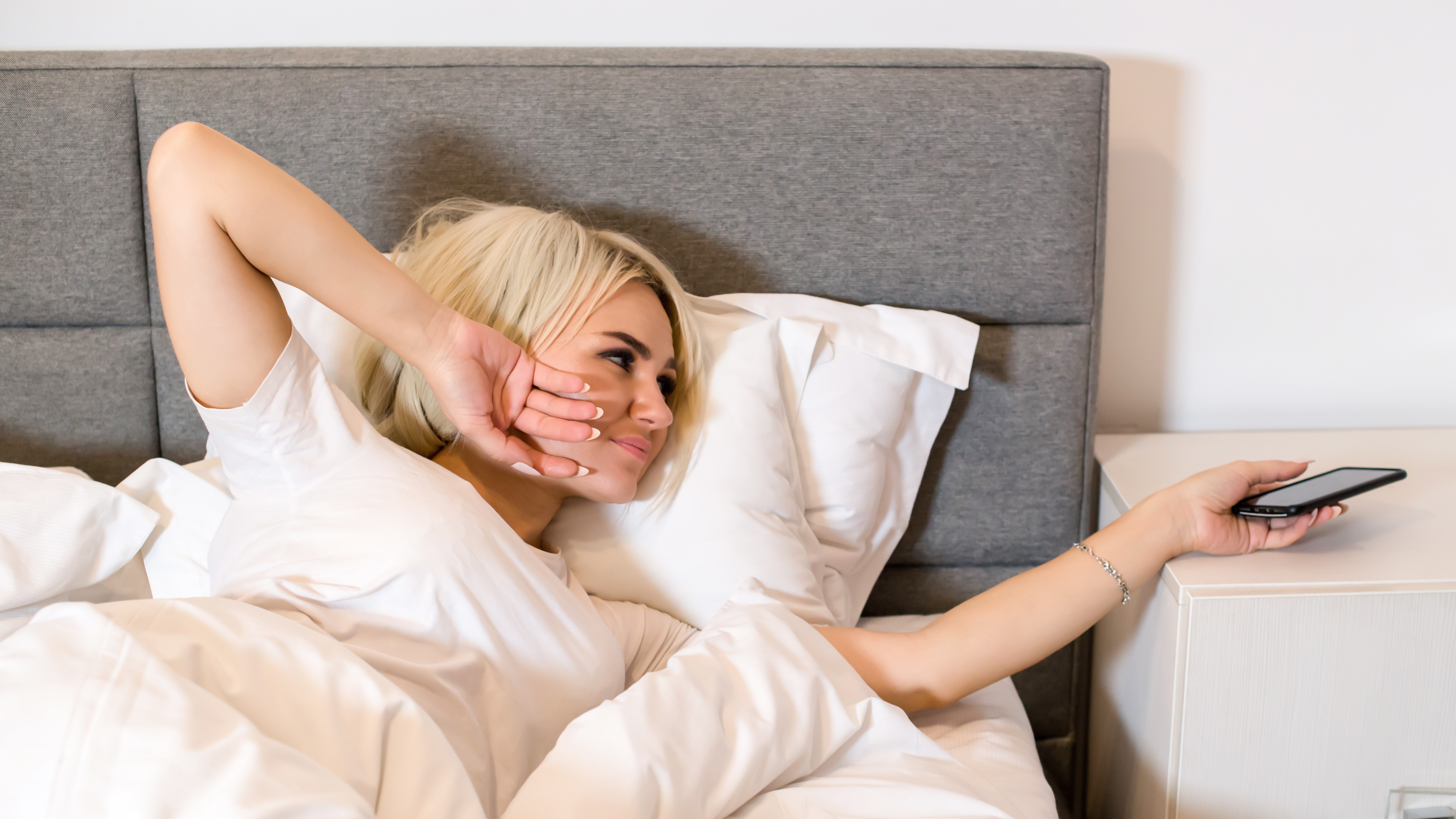
Evening screen time can impact on how well you sleep, because the blue light that your phone emits can overstimulate the mind by tricking it into thinking it's daylight, which will make sleep harder to come by, but even if you've fixed that by activating a dark mode, late-night doomscrolling can be just as ruinous to your sleep, so Chloe suggests that you resist looking at your devices late at night.
"Switch off phone notifications by using the Do Not Disturb feature on your phone," she suggests, "use night time filters, and avoid engaging, stimulating TV or film content in the lead up to bedtime." Instead, switch to soothing evening entertainment. Nostalgia can help sleep, so there may be some merit in returning to your well-worn favorite shows and books.
5. Build a bedtime routine
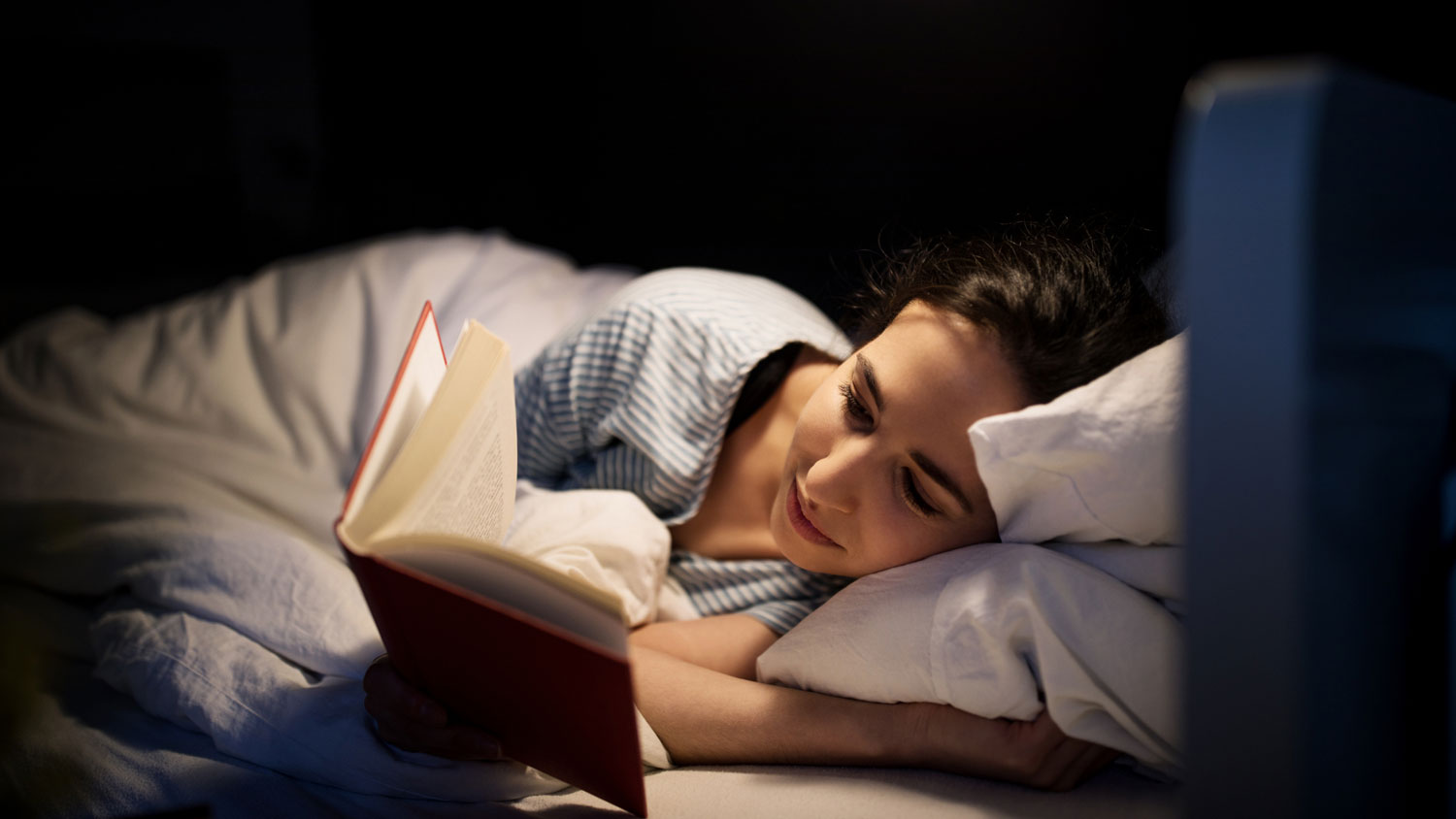
Our minds and bodies love a good routine; it saves us the hassle of having to think about what we're doing, making it easier to build new, healthier habits. So, says Chloe, you should take advantage of this by developing a night-time routine to optimise your sleep window. "A healthy bedtime routine that includes things such as reading, listening to relaxing music or performing a step-by-step skincare routine will help to soothe you before bed," she says, "helping you achieve that ideal window of sleep needed for your wellbeing."
6. Keep on track with a sleep diary
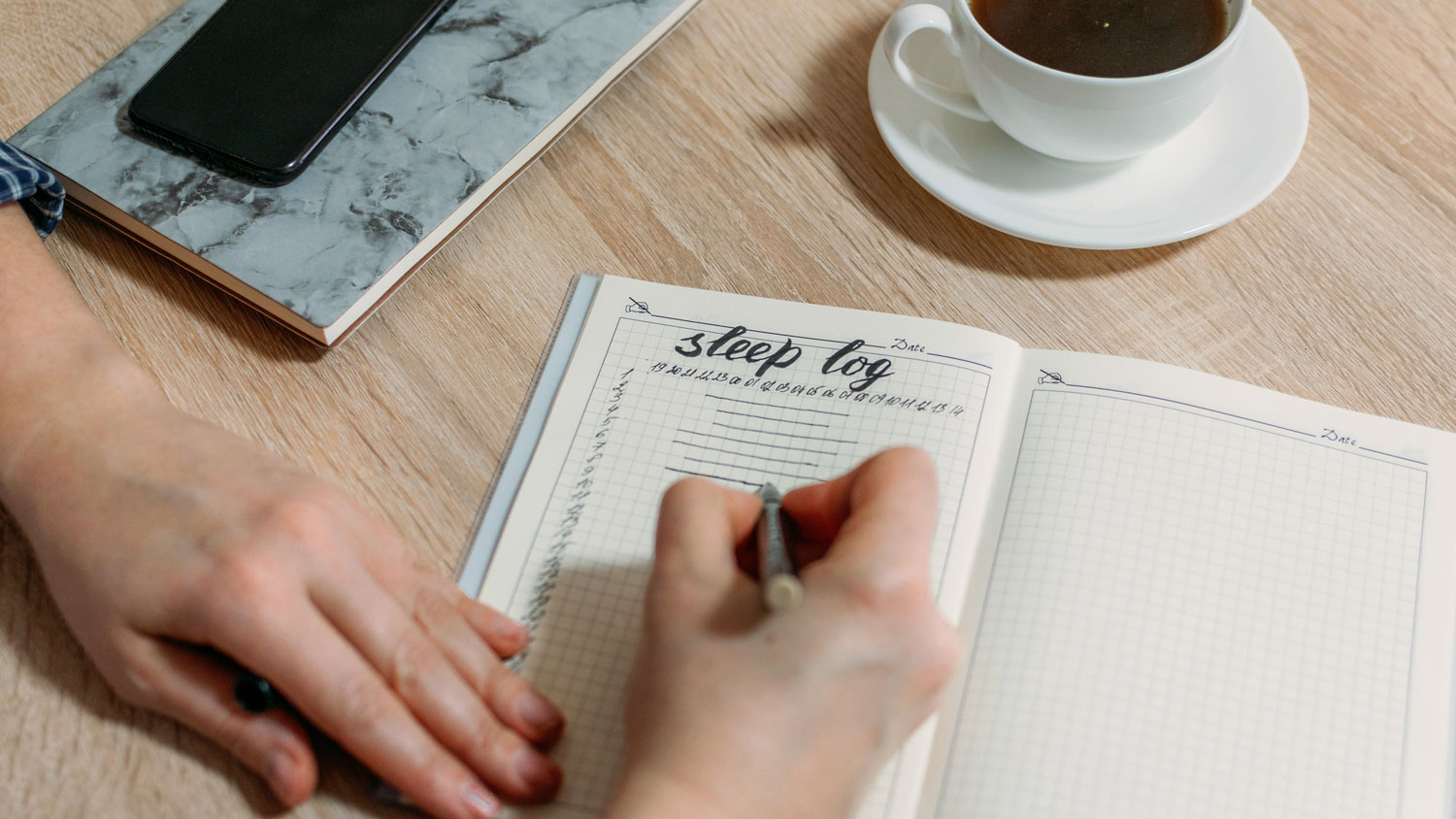
Finally, while you might start working on your sleep window with the best intentions, it's easy to let things slip. To prevent that, Chloe suggests writing a sleep diary; making notes of mental distractions, and giving yourself daily deadlines to keep yourself consistent. "For example," she suggests, "having the last cup of coffee at 12 noon, herbal and decaf beverages only after this time; evening meal to finish at 7pm; switch off phone/TV and start bedtime routine at 9pm. With these distractions out of the way, you will be able to discern when your body usually wants to fall asleep naturally."
Want to know more about finding your ideal sleep window? Mattress Online has all the details on timing your sleep to your natural rhythms.
A professional writer with over a quarter of a century's experience, Jim has been covering mattress and sleep-related subjects for TechRadar, Tom's Guide and T3 over the past few years, gathering an in-depth knowledge of the workings of the mattress industry along the way. Previously Jim has covered a wide variety of subjects, working widely in the tech and gaming sectors, and more recently covering the design and wellness industries.
